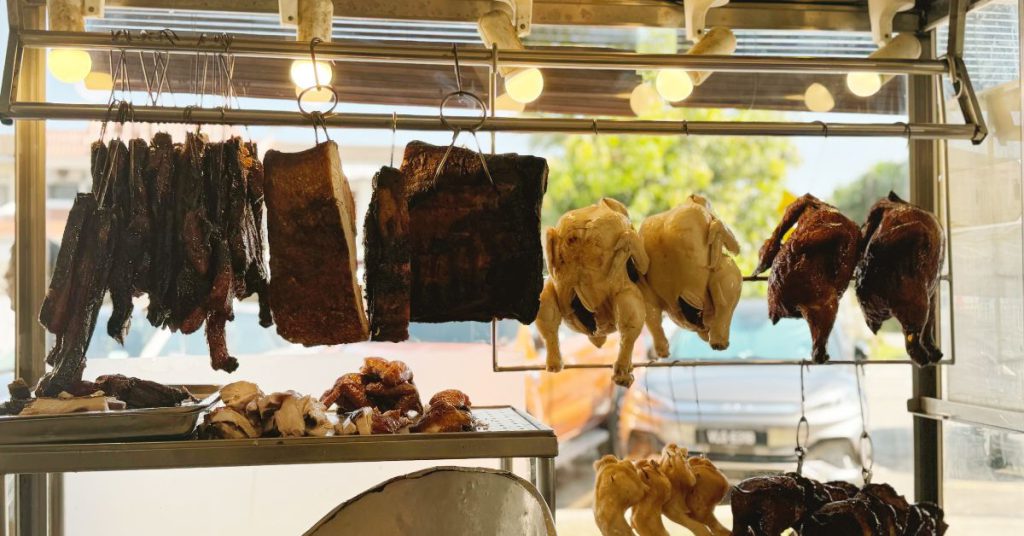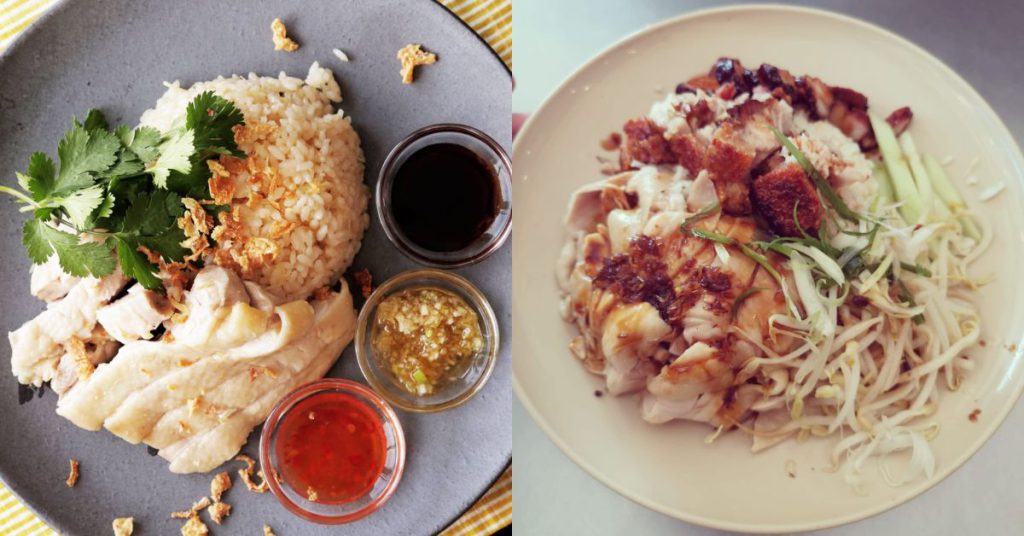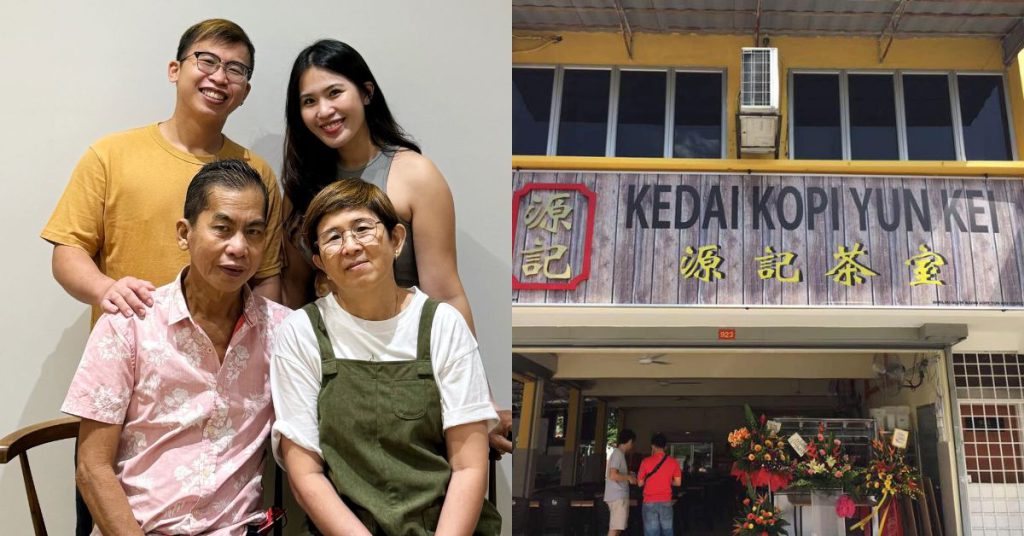As a Melakan, my all-time favourite kind of chicken rice is chicken rice balls. There’s something about the spherical format that makes the meal taste so much better to me.
But so far, my favourite chicken rice haunt in the Klang Valley area has been Yun Kei, hands down. At one point, it was the only reason why I even used Shopee Food (they now deliver on Grab too).
There’s just something so fragrant about their rice, and the oiliness hits the right spot. The chili offers just the right amount of garlicky spiciness to the dish. And don’t get me started on their crispy, juicy roast pork.
While the Yun Kei brand has been around since 1992, its current store in Section 17 (which is known as a haven for chicken rice lovers) only opened in 2017. Here’s the story of how the family business came to be, and where it’s going next, as told by second-generation owner, Shin Li Wen.
A family business
When Yun Kei started 32 years ago, neither Li Wen nor her brother, Stanley, were even born yet.
“Back then, my father was working for my uncle in a local coffee shop as a barista,” she began. “After he met my mum and started a family of his own, my dad exited my uncle’s business and had the idea to start his own business to support the family.”
At that time, he came across a vacant chicken rice stall in Wah Cheong and saw an opportunity.

Li Wen mused, “I always remembered the stories my parents shared with Stanley and me about the trial and errors they had to endure during the old days—from failed products that they had to dispose of to only being able to sell 20 plates of chicken rice per day and extending their operating hours just to hope to make enough sales for the day.”
But they persisted, and the business got better over the years. At one point, Yun Kei even grew to two stalls—one in Wah Cheong, and one in O&S Restaurant.
In 2017, they decided to close both stalls and open up their own because the parents believed it was time to expand, especially with Stanley joining the business.

“They thought the business would have been more visible and that it’d be more recognisable if we had our own store with our own name,” Li Wen elaborated. “Having our own store, it’s more spacious and the hygiene of the shop is under our control.”
Their own secret recipes
Li Wen believes that their chicken rice stands out due to the fact that everything is prepared in-house, from soy sauces to roasting the meat.
“Most chicken rice stalls get their roasted meat supplied and this may be why most stalls have the same standard taste,” Li Wen pointed out.
The recipes used were formulated by her father when he started the business.
One of his frequent customers was a roast meat chef, so he ended up learning his duck roasting technique, which Li Wen’s dad later applied in his roast chicken and pork.

Yun Kei has its flavours and recipes down pat, but something that Li Wen believes is a challenge is cost control.
“As many people perceive hawker food to be cheap food, the continuous [price] increase in raw materials in the past two years has been eating into our profit margins,” she revealed.
Yet, they can’t increase their prices too frequently or by large margins as there will be an obvious impact on sales.
Thus, she hopes that more customers will be more understanding. As difficult as inflation is on our wallets, it’s just as bad for the sellers too.
Moving forward, Li Wen has ambitions to explore the packaged goods industry, such as through instant meals or selling bottled in-house sauces.
Other than that, she said Yun Kei is also keen to explore creating new modern fusion food items, adapting to the trends of future generations.
But when it comes to expanding, they do not have any plans to branch out yet. This is as they’re concerned that might compromise the quality of their food.
Keeping the legacy alive
These days, it seems like fewer local youths are less willing to work as hawkers, which makes sense as there are many other career options that are rewarding for less physical effort.
This is something that Li Wen herself recognises too. So how did she and her brother end up taking on the mantle?
Both she and her brother have always been somewhat involved in the business. Living on the floor above their shop, it was a win-win for them to help out as it allowed their parents to keep a watchful eye over them.
“I can still clearly remember chicken rice used to be priced at RM3.50 and when I was given a ‘promotion’ to start serving customers at around 6 years of age (prior to that our job was only to clean tables),” she recalled.
Yet, Li Wen doesn’t think they were ever expected to join the family business. “Our decision to join the family’s business is more of a need than a choice—it is about providing for our family,” Li Wen revealed.

In 2012, their dad’s health suddenly deteriorated. To save the business, Stanley chose to quit his studies and take over. As for Li Wen herself, she officially joined the family business in 2020 when the business encountered manpower issues due to the pandemic.
“At that time, I couldn’t bear to see my mother and brother get worn out from work every day and thought it would be a waste to shut down the business due to a lack of manpower,” she reasoned.
Over the past year, it has been mainly Stanley and Li Wen who have been running the business.
Their mum, who patrons know as Ms Jenny, is still working with them, but the two foresee her stepping down in another year or two, so she can slow down and enjoy herself.
“It would be a lie to say it is not difficult,” Li Wen said about the journey so far. “I’ve even thought of quitting a million times after I joined not long ago due to the hard work, time and energy that I needed to sacrifice for the business.”
But in hindsight, looking at how things have improved, she feels proud and happy that they never gave up.
As for succession plans, the siblings aren’t in a rush to answer that. Li Wen believes it’ll depend on whether the next generation are even willing to take over. “If there is an interest, we would be more than happy for our recipes to be preserved and continued.”
Featured Image Credit: Yun Kei











